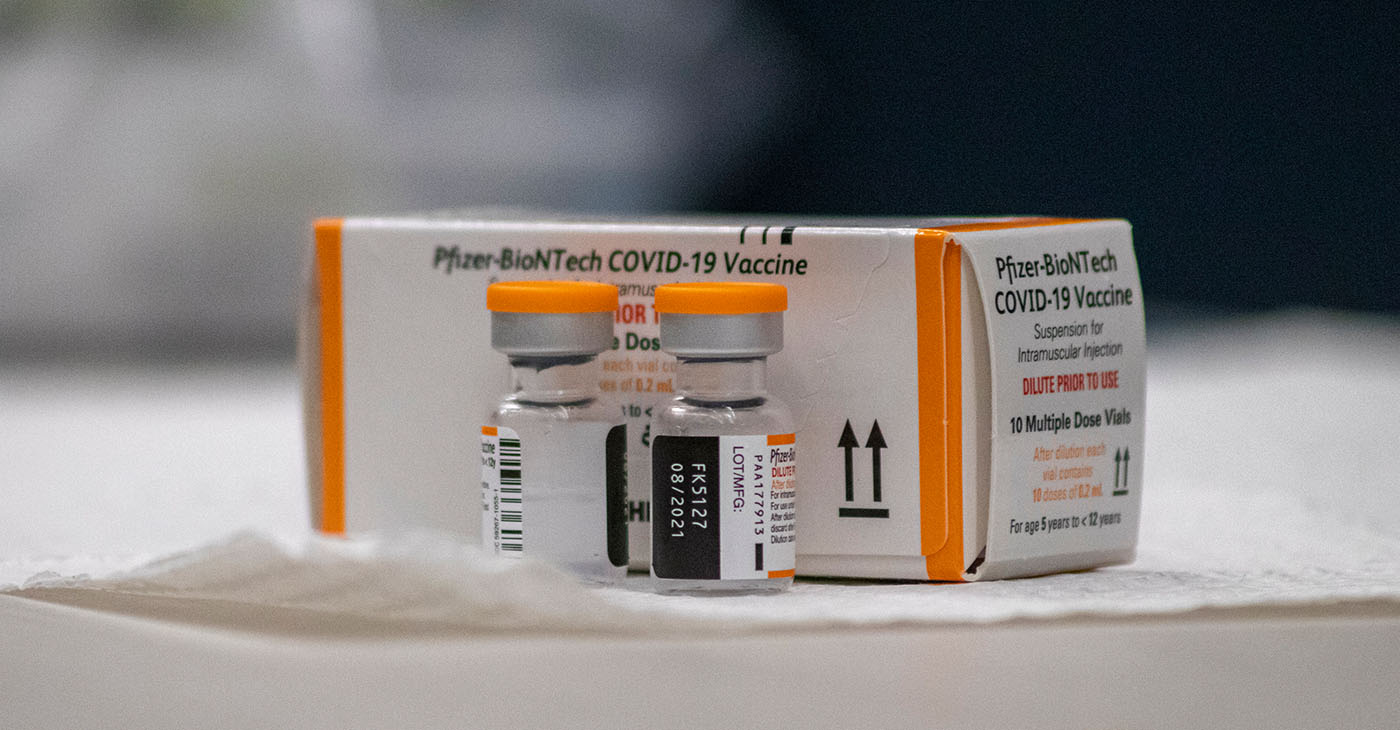Coronavirus
As the Pandemic Drags on, Cal Lawmakers Push Bills to Keep Public Meetings Virtual
Executive Order No. N-29-20 relaxed provisions in California’s Bagley-Keene and Ralph Brown acts, allowing state, county and city government institutions to take their public meetings online.

The threat of the COVID-19 Delta variant has become more apparent. And what was once the looming possibility of reinstating pandemic public safety guidelines is becoming reality. As this is happening, California lawmakers are pushing a number of bills to expand the use of various telecommunication options for public meetings.
On July 2, Gov. Gavin Newsom announced the extension of Executive Order No. N-29-20, through September 30. The goal of the order, which he issued last year, was to make sure Californians continued to have uninterrupted access to government meetings as the global COVID-19 pandemic disrupted the state’s day-to-day operations. It was set to expire June 15.
Executive Order No. N-29-20 relaxed provisions in California’s Bagley-Keene and Ralph Brown acts, allowing state, county and city government institutions to take their public meetings online.
“A local legislative body or state body is authorized to hold public meetings via teleconferencing and to make public meetings accessible telephonically or otherwise electronically to all members of the public seeking to observe and to address the local legislative body or state body,” Newsom’s order read.
California’s Brown Act of 1953 ensures in-person public participation in county and local government meetings. The Bagley-Keene Act guarantees the same for meetings held by state boards, state commissions, and state agencies.
Citing inadequate staff or equipment, some California governments — Lemon Grove, San Diego County and the Carlsbad City Council – have already reduced or removed the option to attend public meetings over Zoom or by phone after returning to in-person meetings earlier this summer.
But activists insist the onus is on government to make it easier for people to participate in the policy discussions that impact their lives.
Last week, the San Diego Democratic Party endorsed a policy initiative called “Boost Democracy” that is the brainchild of the Rev. Shane Harris, a local activist and founder of the People’s Alliance for Justice.
It proposes that four of the county’s largest agencies – the San Diego Unified School District (SDUSD), San Diego County Board of Supervisors, San Diego County Office of Education, and San Diego City Council – adopt a text message notification system to public meetings that alerts the public when their agenda item is up for discussion.
“The party backs my proposal because they know that it’s right and it will make lives easier for everyday people,” Harris said. So far, only SDUSD has endorsed the Harris’s idea.
The bills, the California lawmakers are moving through the Legislature, are Assembly Bills 703, 361 and 339.
Assembly Bill (AB) 703, introduced by Assemblymember Blanca Rubio (D-Baldwin Park) would do away with many of the Brown Act restrictions on teleconferencing from various locations, allowing for broader virtual access.
“This bill would remove the notice requirements particular to teleconferencing and would revise the requirements of the act to allow for teleconferencing subject to existing provisions regarding the posting of notice of an agenda, provided that the public is allowed to observe the meeting and address the legislative body directly both in person and remotely via a call-in option or internet-based service option, and that a quorum of members participate in person from a singular physical location clearly identified on the agenda that is open to the public and situated within the jurisdiction,” the text of the bill reads.
AB 703 would remove the current Brown Act requirements that each virtual or telephone location be identified and made public.
The bill also includes a requirement to streamline the process of reviewing and resolving Americans with Disabilities Act requests for virtual meetings.
AB 703 has now been referred to the Assembly Committee on Local Government and is awaiting further action.
AB 361, introduced by Assemblymember Robert Rivas (D-Hollister) would allow local agencies to hold remote meetings during a declared state of emergency.
This bill, until January 1, 2024, would authorize a local agency to use teleconferencing without complying with the teleconferencing requirements imposed by the Ralph M. Brown Act when a legislative body of a local agency holds a meeting during a declared state of emergency,” the bill’s text reads.
AB 361 passed in the Assembly Committee on Local Government and is currently being reviewed by the Senate Judiciary Committee.
Finally, AB 339 — introduced by assemblymembers Rivas, Joaquin Arambula (D-Fresno), Ken Cooley (D-Rancho Cordova) and Kevin Kiley (R-Rocklin) — would require county supervisors and city councils to allow the public to have access to meetings through a two-way phone option or a two-way internet interfacing option along with video streaming and in-person comments or questions.
“This bill would, until Dec. 31, 2023, require all open and public meetings of a city council or a county board of supervisors that governs a jurisdiction containing at least 250,000 people to include an opportunity for members of the public to attend via a two-way telephonic option or a two-way internet-based service option, as specified, and would require a city council or county board of supervisors that has, as of June 15, 2021, provided video streaming, as defined, of at least one of its meetings to continue to provide that video streaming,” the bill’s text reads.
AB 339 would also require public agencies to provide real time translators for their virtual meetings.
AB 339 has been referred to the Committee on Appropriations in the Assembly.
Supporters of virtual meetings say, for parents, disabled citizens, people without access to reliable transportation, seniors and other Californians who have trouble attending public meetings, teleconferencing has provided an avenue for Californians to be more involved in the legislative process than had been possible before.
“If there is one silver lining from the pandemic, it’s that public access to local government meetings expanded beyond physical attendance, to telephonic and even video attendance,” said David Snyder, executive director of the First Amendment Coalition, a non-profit organization that focuses on supporting freedom of speech and accountability in government. “This made local democracy accessible for many who would otherwise not be able to attend–and public agencies should maintain, not constrict, this access as California returns, however slowly, to normal.”
These bills, if passed, could set the ground for extending public access far beyond COVID-19.
California Black Media
Gov. Newsom and Gov. DeSantis Go Head-to-Head in Nationally Televised Debate
Conservative Fox News personality Sean Hannity moderated the duel, during which the TV pundit, more than once, injected his opinion, and appeared to be providing subtle assists to DeSantis. As the debate progressed, it was clear that opinions about each topic discussed was representative of the philosophical and political chasm that divides liberal and conservative America, and a preview of campaign mudslinging that is bound to intensify as the 2024 presidential campaign ensues.

By California Black Media
In an intense, 95-minute-plus televised faceoff between California Gov. Gavin Newsom and Florida Gov. Ron DeSantis on Nov. 30, the men traded jabs and putdowns, defended their respective gubernatorial records, disagreed sharply on how to solve the country’s most pressing problems, and expressed clashing views on the performance of the Biden-Harris administration.
Conservative Fox News personality Sean Hannity moderated the duel, during which the TV pundit, more than once, injected his opinion, and appeared to be providing subtle assists to DeSantis.
As the debate progressed, it was clear that opinions about each topic discussed was representative of the philosophical and political chasm that divides liberal and conservative America, and a preview of campaign mudslinging that is bound to intensify as the 2024 presidential campaign ensues.
“I’ll tell you why I’m here,” Newsom said. “I’m here to tell the truth about the Biden-Harris record and also compare and contrast Ron DeSantis’ record and the Republican Party’s record” with that of California.
DeSantis blasted Newsom’s management of the COVID-19 crisis and criticized Newsom for prevalent crime, homelessness and deteriorating social conditions in California cities.
“You have the freedom to defecate in public in California,” DeSantis said. “You have the freedom to pitch a tent on Sunset Boulevard. You have the freedom to create a homeless encampment under a freeway and even light it on fire. They’re not the freedoms our founding fathers envisioned.”
Newsom took a jab at DeSantis’ presidential candidacy, predicting that the Florida Governor would be endorsing GOP frontrunner Donald Trump soon.
“There’s one thing we have in common,” Newsom said. “Neither of us will be the nominee for our party in 2024.
BayCityNews
FDA Updates Approval of Pfizer Booster Vaccine for Children Under 5
The U.S. Food and Drug Administration updated its approval Tuesday of the Pfizer-BioNTech booster vaccine, making it available to some children under age 5. Before this update, children under 5 were not eligible for COVID-19 booster shots. Instead, they received three doses of the regular vaccine.

By Eli Walsh
Bay City News
The U.S. Food and Drug Administration updated its approval Tuesday of the Pfizer-BioNTech booster vaccine, making it available to some children under age 5.
Before this update, children under 5 were not eligible for COVID-19 booster shots. Instead, they received three doses of the regular vaccine.
As of December 2022, children age 4 and younger who have not been vaccinated receive the omicron variant-specific booster vaccine as the third dose in their primary vaccine series, following two doses of the original Pfizer vaccine.
However, children in that age range who completed their initial vaccination series before December 2022 only received three doses of the original Pfizer vaccine, and are less protected against more infectious variants of the virus as a result.
FDA officials updated the vaccine’s emergency use authorization Tuesday to allow those children who only received the original Pfizer COVID vaccine to receive one dose of the bivalent booster if it has been at least two months since they completed their initial series.
Other children under age 5 are not eligible for the booster, although everyone age 5 and up is eligible for a booster.
“Currently available data show that vaccination remains the best defense against severe disease, hospitalization and death caused by COVID-19 across all age groups, and we encourage all eligible individuals to make sure that their vaccinations are up to date with a bivalent COVID-19 vaccine,” said Dr. Peter Marks, the director of the FDA’s Center for Biologics Evaluation and Research.
Clinical data has found that both the original Pfizer vaccine and the booster vaccine that targets the omicron subvariants BA.4 and BA.5 are safe for everyone aged 6 months and up and effective at preventing the worst outcomes of COVID infection, including serious illness and death.
COVID vaccines are available at primary care providers, retail pharmacies and some facilities operated by local health departments.
Copyright © 2023 Bay City News, Inc. All rights reserved. Republication, rebroadcast or redistribution without the express written consent of Bay City News, Inc. is prohibited. Bay City News is a 24/7 news service covering the greater Bay Area.
Bay Area
COVID-19 Response Grant Program
The City of Union City will be issuing another round of its COVID-19 Response Grant Program. The program has distributed approximately $620,000 in grant funds and forgivable loans to the community to respond to the impacts of COVID-19 and will distribute another $322,000 through this latest round of funding. The City will utilize federal Community Development Block Grant (CDBG) and CARES Act funds.

The City of Union City will be issuing another round of its COVID-19 Response Grant Program. The program has distributed approximately $620,000 in grant funds and forgivable loans to the community to respond to the impacts of COVID-19 and will distribute another $322,000 through this latest round of funding. The City will utilize federal Community Development Block Grant (CDBG) and CARES Act funds.
Grants are available through the City’s Road to Recovery Small Business Assistance Program and the Residential Rental Assistance Program. The City began accepting applications on March 6, 2023, at 9 a.m. and will begin reviewing applications (up to 50 applications for each grant opportunity) submitted on or before March 30, 2023, at 5 p.m. The program information and the online application are available on the City’s website:
https://www.unioncity.org/548/COVID-19-Response-Grant-Program
The City will be holding two informational/technical assistance meetings to support residents and businesses with their applications and respond to any questions. These meetings will be streamed via Zoom. See below for meeting information and Zoom meeting links.
Tuesday, March 14, 2023: 9 a.m. to 10 a.m.
https://unioncity-org.zoom.us/j/89061570160
Wednesday, March 15, 2023: 12 p.m. to 1 p.m.
-

 Activism4 weeks ago
Activism4 weeks agoOakland Post: Week of March 27 – April 2, 2024
-

 #NNPA BlackPress4 weeks ago
#NNPA BlackPress4 weeks agoBeloved Actor and Activist Louis Cameron Gossett Jr. Dies at 87
-

 Community1 week ago
Community1 week agoFinancial Assistance Bill for Descendants of Enslaved Persons to Help Them Purchase, Own, or Maintain a Home
-

 Activism3 weeks ago
Activism3 weeks agoOakland Post: Week of April 3 – 6, 2024
-

 Business2 weeks ago
Business2 weeks agoV.P. Kamala Harris: Americans With Criminal Records Will Soon Be Eligible for SBA Loans
-

 Activism2 weeks ago
Activism2 weeks agoOakland Post: Week of April 10 – 16, 2024
-

 Community2 weeks ago
Community2 weeks agoAG Bonta Says Oakland School Leaders Should Comply with State Laws to Avoid ‘Disparate Harm’ When Closing or Merging Schools
-

 Community7 days ago
Community7 days agoOakland WNBA Player to be Inducted Into Hall of Fame






















































